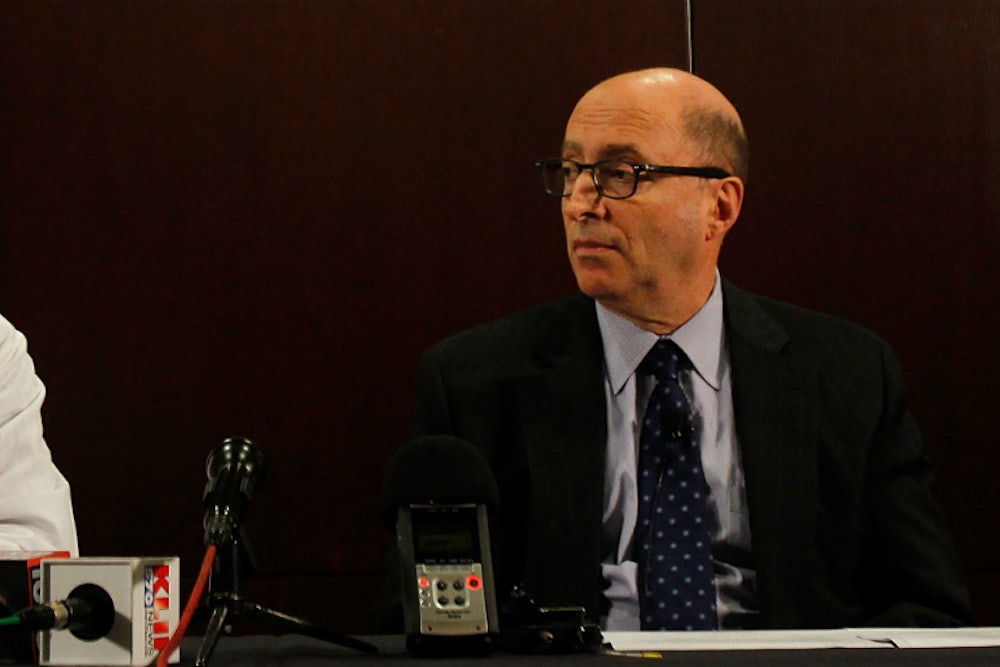It’s no great mystery how the first reported case of Ebola ended up at a hospital in Dallas, Texas. According to the U.S. Centers for Disease Control, the infected man seemed healthy when he boarded a plane in Liberia and remained that way upon arriving in the U.S. With no obvious symptoms and no fever, he passed easily through active airport screening in Liberia and the passive version here in the states. That’s the reality of Ebola. People remain asymptomatic for up to 21 days, during which time it’s basically impossible to tell whether they are sick.
But what happened four days after the man's arrival remains a mystery—and a potentially troubling one.
CDC officials say the man started feeling sick and went to a local hospital emergency room. There, staff examined the man, diagnosed him with something other than Ebola, and sent him home with antibiotics. Two more days passed before he returned to the hospital, this time via ambulance, and doctors realized he might have the virus.
The big question is why he was sent home in the first place.
Weeks ago, the Centers for Disease Control distributed guidelines to health care providers and hospitals, including instructions for early detection of the disease. Under those guidelines, medical professionals should suspect and test for Ebola when patients who have been to affected countries show symptoms, such as a fever over 101.5 degrees Fahrenheit, vomiting, or muscle pain. At that point, under the guidelines, it’s up to the doctors whether to keep and isolate the patient, or to let the patient leave while under some kind of monitoring.
And what happened this time? On Wednesday, officials at Texas Health Presbytarian Hospital offered some details. Via CNN:
The patient, a man, walked into an emergency room at Texas Health Presbyterian Hospital in Dallas on September 26. A nurse asked him about his recent travels while he was in the emergency room, and the patient said he had traveled to Africa, said Dr. Mark Lester, executive vice president of Texas Health Resources.
But that information was not "fully communicated" to the medical team, Lester said.
The man, who had flown from Liberia to the United States about a week earlier, underwent basic blood tests, but not an Ebola screening, and was sent home with antibiotics, said Dr. Edward Goodman with Texas Health Presbyterian Hospital.
CDC officials and public health experts are confident that Ebola won't become a major epidemic here. There's good reason for that. The virus doesn't spread through the air and U.S. facilities, unlike those in developing countries, have the training and resources they need to contain the disease. By all accounts, the staff at Texas Health Presbytarian Hospital, where the man is now in stable condition, are handling the case exactly as they should.
Even so, officials need to figure out why the system broke down the first time the man showed up at Texas Health Presbytarian. Our ability to contain future, more dangerous outbreak threats depends ultimately on front line professionals serivng as sentinels as well as healers. Understanding why that didn't happen this time can help us avoid such mistakes in the future.
Update: I've revised this item to reflect the information hosptial officials provided on Tuesday afternoon.
